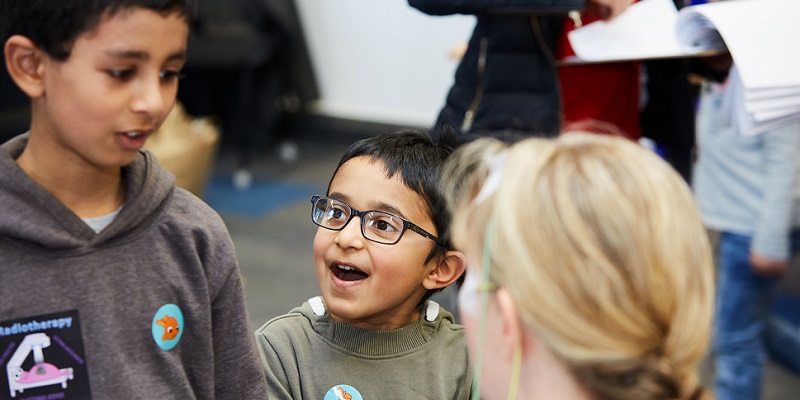Partnerships for better education

Positive Impact Partners (PIP) is our flagship programme designed to increase collaboration with the third sector, build capacity, and positively contribute to our local communities.
Through PIP we connect local third sector organisations with staff at the University to exchange knowledge and skills, share resources, and create new collaborative partnerships. Our programme benefits our PIP partners, the University, and third sector organisations in the local community, and works towards the University’s commitment to the United Nations Sustainable Development Goals.
By offering a range of one-to-one support partnerships, collaborative project work, and knowledge exchanges with local non-governmental organisations (NGOs), PIP strengthens communities, fosters innovation, and enables better educational opportunities for children in Leeds. As part of our 2020 PIP update, we’ve collated some case studies to showcase the success of our partnerships with local educational organisations.
IntoUniversity and Prof. Cecile De Cat
Cecile De Cat, Professor of Linguistics, was paired with Helen Dermody from IntoUniversity, a third sector organisation that supports young people from disadvantaged backgrounds to attain either a university place or another chosen aspiration. The partnership aimed to explore the needs and challenges faced by EAL (English as an additional language) pupils, and the strategies that could support them, especially through the University’s Students into Schools (SiS) placement scheme.
The partnership explored the needs of pupils with EAL through observation of Focus Day workshops provided by IntoUniversity for Year 5 pupils.
Cecile De Cat, Professor of Linguistics at the University of Leeds said;
This allowed us to observe first-hand some of the challenges facing EAL pupils, and the strategies which can support their learning and development.’
Cecile invited education outreach representatives from IntoUniversity to join a series of workshops for EAL teachers and support staff, a one-day workshop on ‘Language Analysis to inform Language Teaching’, and a conference aimed at practitioners on ‘Enhancing EAL support: opportunities and best practice’.
In addition, the partnership created a database of open-access EAL teaching and learning resources via a new EAL Children website, which we developed for SiS students and EAL practitioners and researchers.
This collaboration made important progress towards the SDGs, particularly around quality education, reduced inequalities, and forming strong partnerships within the community. It strengthened our shared understanding, both of practitioner and pupil needs, and contributed to the support for EAL pupils locally.
Foundation for Digital Creativity and Thom Cooper
The partnership was an academic and education collaboration, based around improving air quality. The aim was to share expertise from the University’s Living Lab with school and community learning activities designed by the Foundation for Digital Creativity, specifically their Internet of Curious Things programme.
The air quality theme through the Positive Impact Partnership had an additional aim to include the co-design of a resource pack alongside sharing of good practice. This was to enable schools and their communities to better understand environmental air pollution, its presentation and effects, whilst also introducing school children to the technologies and associated links to the computing curriculum. Moreover, these resources were intended to help to raise awareness of data science and evidence based decision-making within the school community, increasing critical awareness of science and technology and its role in society.
This project achieved various outcomes across the SDGs listed below, including:
- Increased awareness and understanding of the science behind air pollution, applied to learning resources used with education and community activities in Leeds and Manchester
- Better opportunities to network and collaborate with scientists and engineers across both organisations
- Education input into a project with MSc students and school engagement programmes in Leeds and Bradford
- University input into community mapping resources which were shared and used during the Leeds Digital Festival
- Opportunities to present on the impact of the PIP at education and engineering conferences, including Things Network, Wuthering Bytes, Leeds Digital Festival
Keep up to date on the latest news
-
- Follow us on Twitter: @UoL_Sus
- Follow us on Instagram: @uol_sus
- Follow us on Facebook: @UoLSustainability
- Sign up to our Sustainability newsletter
United Nations Sustainable Development Goals
We use the United Nations Sustainable Development Goals (SDGs) as a framework to guide our activity. Our work on Positive Impact Partners is linked to the following SDGs:
-
-
- Goal 4: Quality education
- Goal 9: Industry, innovation and infrastructure
- Goal 10: Reduced inequalities
- Goal 11: Sustainable cities and communities
- Goal 17: Partnerships
-
Find out more about our impact on the SDGs.
